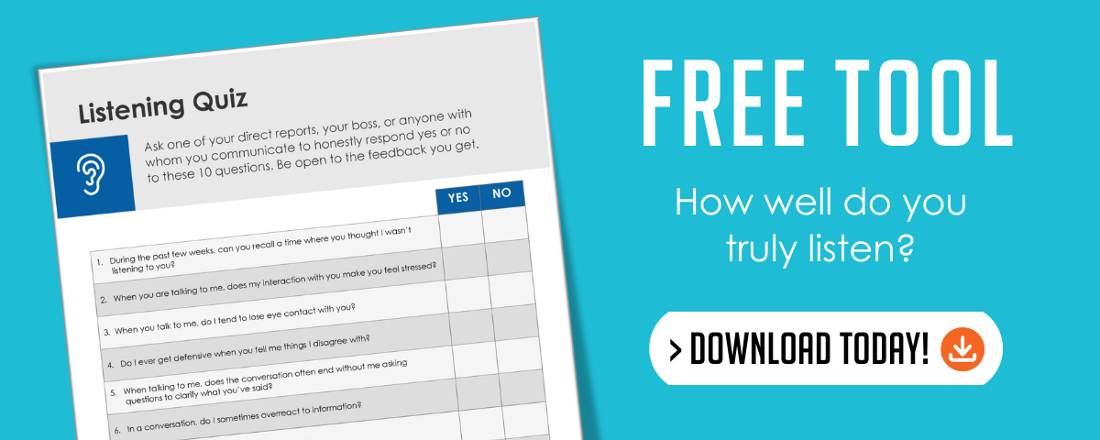
Never underestimate the power of listening - really listening.
Think you're good at it? Like all skills, there are multiple levels of mastery. How do you know you're a pro at listening?
Check first to see whether you're good at the basics. Growing up, I learned the catch-phrase, "Stop. Look. Listen." to keep me safe when I needed to cross a railroad track. The same strategy will keep you on track when it comes to listening.
Listening Basics: Stop. Look. Listen.
- Stop: Stop talking. Be quiet. Resist the urge to think about what you're going to say next.
- Look: Look directly at the person speaking. Don't multi-task; focus on the speaker and what he or she is saying.
- Listen: Listen with an open mind, not for what you want to hear or think you might hear next. (If you're someone who finishes other's sentences, or sometimes interrupts, those are two clues that you're not listening.) Ask questions to ensure you understand. Paraphrase back what you're hearing to check for understanding: "So, if I'm hearing you right..." or "Tell me if this is what you're saying..."
3 Advanced Listening Skills
If you're great at the fundamentals, consider these advanced skills:
- Listening for what's not said: When was the last time you were listening and picked up on a cue about something that was not said? A critical detail that was missing?
- Flexing your style: Do you adapt how you listen based on a leader's style (the sender)? Introverts need more time to process and listening means being comfortable with silence. Since extroverts think out loud, listening means more paraphrasing back to ensure you understand the main point he or she is trying to make in a potentially long-winded and confusing way.
- Asking questions in a way that helps ground you at a strategic (not tactical) level: That's all about asking broad, probing, open-ended questions first, which allow the speaker to take the conversation in a direction they choose. For example, you might ask:
- "Help me understand..."
- "How do you envision...?"
- "What's the outcome you seek?"
- "What other strategic alternatives did you consider?"
Next, ask more directive questions, which focus the conversation and get at additional specifics:
- "Tell me more about...?"
- "How would this work?"
- "How did you come to this conclusion?"
As with any learned skill, you need to practice these strategies. Most people aren't born with the ability to ride a bike or to swim. Someone needs to show you how, and you then need to practice. As my high school music teacher said, "It's not practice that makes perfect. It's perfect practice that makes perfect." Glad I was listening when she said those words of wisdom.
Which of these techniques will help you advance your listening skills?
—David Grossman
This free one-page quiz asks 10 questions (to be answered honestly by someone other than yourself) that address indications of whether or not you listen well. Take it today … the results may surprise you.


Comments on this post